Kendall Jenner and Hailey Bieber swear by the workout - so, is at home Pilates really as effective as going to a class IRL?
Home workouts for the win.
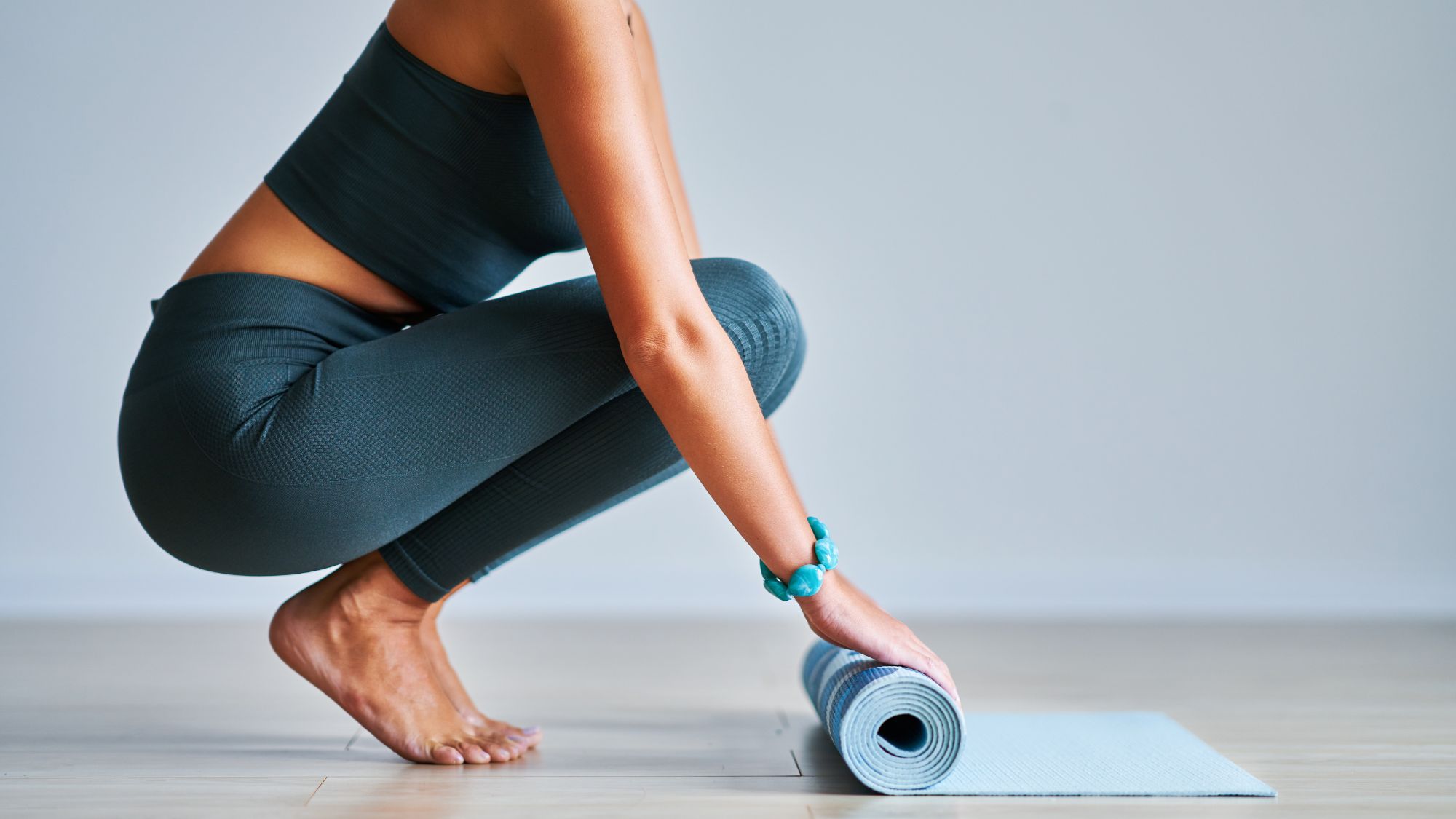

Is there anything more popular than Pilates right now? The celeb-favourite workout, beloved by everyone from Hailey Bieber to Harry Styles, has fast become the class of choice for 2024. From Reformer to classical, physio-led and more, there’s a Pilates class to suit everybody – and with a seriously impressive array of health benefits, it’s no wonder. But, question: does at home Pilates work as effectively as, say, in-studio classes to boost muscle tone and strength?
Good question. As appealing as rocking up to a swanky studio complete with state-of-the-art equipment is, many coaches maintain that you really don’t need to spend hundreds (or more) on an IRL class to reap the benefits of Pilates. Post-pandemic, it’s never been simpler or cheaper to access high-quality workouts from the comfort of our own homes, with Pilates workouts being one of the more accessible sweat sessions to try out from the comfort of your living room. All you really need is some form of mat and you’re good to go.
But can 20 minute Pilates workouts and 30 minute Pilates workouts from home really offer the same benefits as a class IRL, with an instructor on hand to tweak positioning and form, and offer motivation? While we’d love to think so, we weren't sure - which is why we've asked top Pilates experts for their honest take.
If you’re into all things low impact, read our guide to the best Pilates clothes tried and tested by team MC UK Editors, plus PT-approved Pilates moves and Pilates bar exercises. For first person reviews, see how we got on testing Pilates sliders, a Pilates ball, and Reformer Pilates, here.
Does at home Pilates work as effectively as going to a class? The experts weigh in
What is at home Pilates?
You probably don’t need us to spell it out, but for the uninitiated, at-home Pilates is exactly what it says on the tin – a Pilates practice undertaken at home/in your office/insert chosen location here.
And at home Pilates can be as simple as you want – you don’t need any equipment, or special clothing to get started.
“At home Pilates refers to practising Pilates exercises in the comfort of your home,” explains Pilates instructor Alexsandra Warburton. “This can typically be guided by online classes, pre-recorded videos, or personalised routines set out by your favourite instructor. Mostly practised using a yoga mat, you can also further develop your practice with support equipment such as a soft ball, resistance bands or hand-held weights, and in some cases even a home Pilates reformer.”
Marie Claire Newsletter
Celebrity news, beauty, fashion advice, and fascinating features, delivered straight to your inbox!
@briannajoye_fitness ♬ Ain't No Mountain High Enough - Marvin Gaye & Tammi Terrell
What are the benefits of at home Pilates?
It’s certainly never been easier to access the benefits of Pilates (or many other forms of exercise) at home. The surge in popularity of at-home workouts has led to a rise in online apps, platforms and streaming services catering to those of us who prefer to exercise at home – and the benefits are myriad.
1. It's convenient
There’s no doubt that the benefits of removing the travel and time barriers of attending a class can’t be understated. We can roll out of bed and be ‘in class’ in under five minutes, without worrying about tube strikes/traffic/getting lost on the way to a new studio.
“Firstly, the convenience factor of at-home Pilates is one of the main reasons they’re so popular,” agrees Warburton. “We can fit workouts into our schedules without the need to travel to a studio, meaning even when life is super busy, we can carve out some time and space for our practice.”
2. It's cost-effective
We don’t need to tell you that we’re still deep in a cost-of-living crisis, and expensive gym memberships or class fees are simply unaffordable for many of us right now. Gone are the days of forking out on a monthly direct debit that we never use – most streaming platforms offer at least a free trial period, if not a free subscription.
“Pilates classes range in cost but on average are between £7 to £45 per class,” says Warburton. “This can mean that committing to numerous in-person classes can quickly rack costs up, with not everybody being able to afford this additional expense. If you enjoy the exercise form and are keen to maintain results and further develop your practice, at home Pilates can be more economical than studio classes, especially when considering one-off fees, membership costs, and travel expenses.”
3. It's inclusive and accessible
As much as we may want to be able to channel our inner Meghan Trainor-esque confidence, we all have days when we’re feeling lacklustre and hibernating feels like the only realistic option. And let’s face it, there are few things as intimidating as trying out a new class where everyone else knows what they’re doing.
Enter stage right, at home Pilates – with no one watching you or caring how you look (aside from partners/pets etc), there’s no gymtimidation, here.
“Accessibility is a huge win for at home Pilates,” agrees Warburton. “Some clients may feel an element of nervousness or shyness to exercising in a group capacity, whereas trying out some of the Pilates specific exercises at home for the first time, removes that barrier to the unknown.”
@amandablauerpilates ♬ original sound - Amanda | Pilates Pro
Is at-home Pilates as effective as going to a class IRL?
Here's the million-dollar question. We’ve seen that the benefits of at home Pilates are undeniable, but are they really as effective as going to a real-life class, with an instructor?
Well, as you might expect, the answer is – it depends.
“With advancements in technology and the availability of high-quality online instruction, at home Pilates has become increasingly effective for many individuals seeking to maintain or even improve their strength, flexibility, and overall fitness level,” says Warburton. “But there are inevitably a few drawbacks to practising Pilates at home. “Without a trained instructor present, individuals practising at home Pilates may be at a higher risk of performing exercises incorrectly, which could lead to injury. It may also be difficult to know exactly which muscle group you should be working on, and where you should be feeling the spicy Pilates burn.”
Added to this – there’s a reason that classes can be expensive. Instructors are highly trained and able to offer modifications for injuries or specific conditions – it’s worth remembering that at-home classes assume a degree of fitness and ability, so if your needs fall outside this, you might be better off (at least to begin with) going to a class.
It seems, as with everything, there’s a balance to be struck. We know that the most effective form of exercise is the one we will actually stick to, and this applies as much to at-home workouts as any other.
“All movement forms can be effective and beneficial,” Warburton tells MC UK. “I believe that the sweet spot is a blend between at-home and in studio practice. At-home Pilates can be just as effective as attending classes in person, but it depends on various factors. With proper guidance from experienced instructors either through online classes/videos or pre-set exercises, individuals can achieve significant results at home.”
So, if you’re already reasonably fit and have been to a fair few Pilates classes IRL, and you’re motivated to work out at home instead – you do you. But if you’re unsure of technique, or love the vibe of working out with others (not to mention the motivation of having your mates waiting for you in class) then you might want to stick with live classes.
However you choose to practice, the most important thing is that you enjoy it. With that, we’re off to do some roll ups.
3 at home Pilates workouts to try today
1. Home Pilates for beginners
What? An easy to follow at-home Pilates flow for beginners to the workout.
Why? New to Pilates and feeling unsure where to start? This simple yet effective sweat session is a great place to start. You need only a good sports bra and twenty minutes of spare time. And... breathe.
How long? 20 minutes.
2. A banded full-body workout
What? A short but sweet 20-minute session that only requires a workout mat and a resistance band.
Why? UDon't underestimate how impactful small Pilates moves can be at targeting certain core, leg, and arm muscles. Utilising a resistance band, this low impact workout from Pilates instructor Lottie Murphy promises to boost muscle and tone.
How long? 20 minutes.
3. Half an hour full body Pilates
What? A slightly longer full body Pilates workout that clearly explains each move.
Why? Keen to take your home sessions up a notch? Move With Nicole is one of the best coaches for guiding you through spicy yet enjoyable sweat sessions. While this workout is certainly challenging, it also makes time for restorative breathwork to make sure your muscles are recovering, too.
How long? 30 minutes.
Shop MC UK's go-to workout kit now:
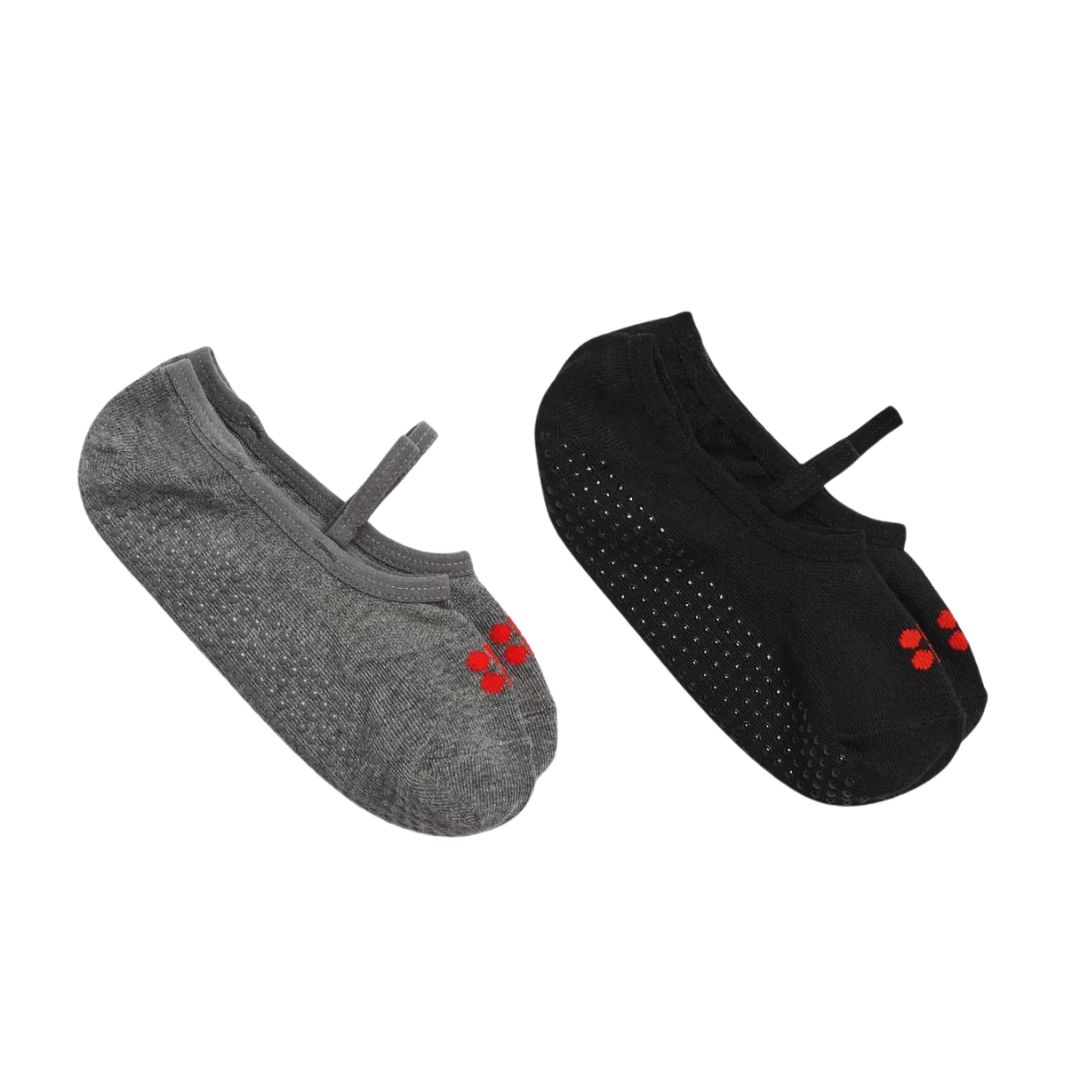
Wherever you choose to practice, you're likely to need some grippy Pilates socks - and this two-pack from cult favourite Sweaty Betty is a great choice. Super soft yet non-slippy, they'll help you ease into your moves with freedom.
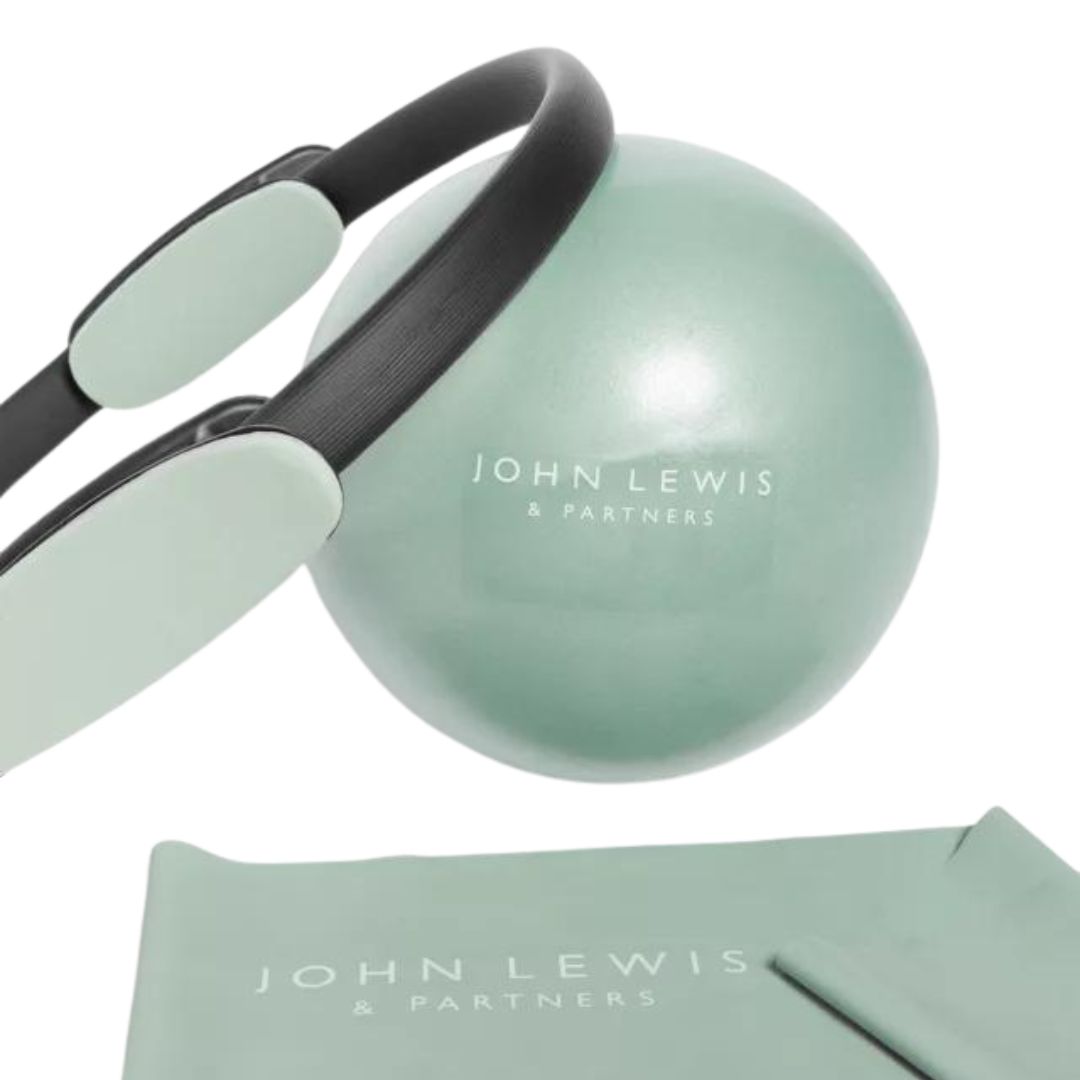
When you're working out from home, sometimes you need some simply equipment to help you up the ante. This Pilates set from John Lewis has everything you need to get started - a resistance ball, band and Pilates ring. Plus, it's great value!
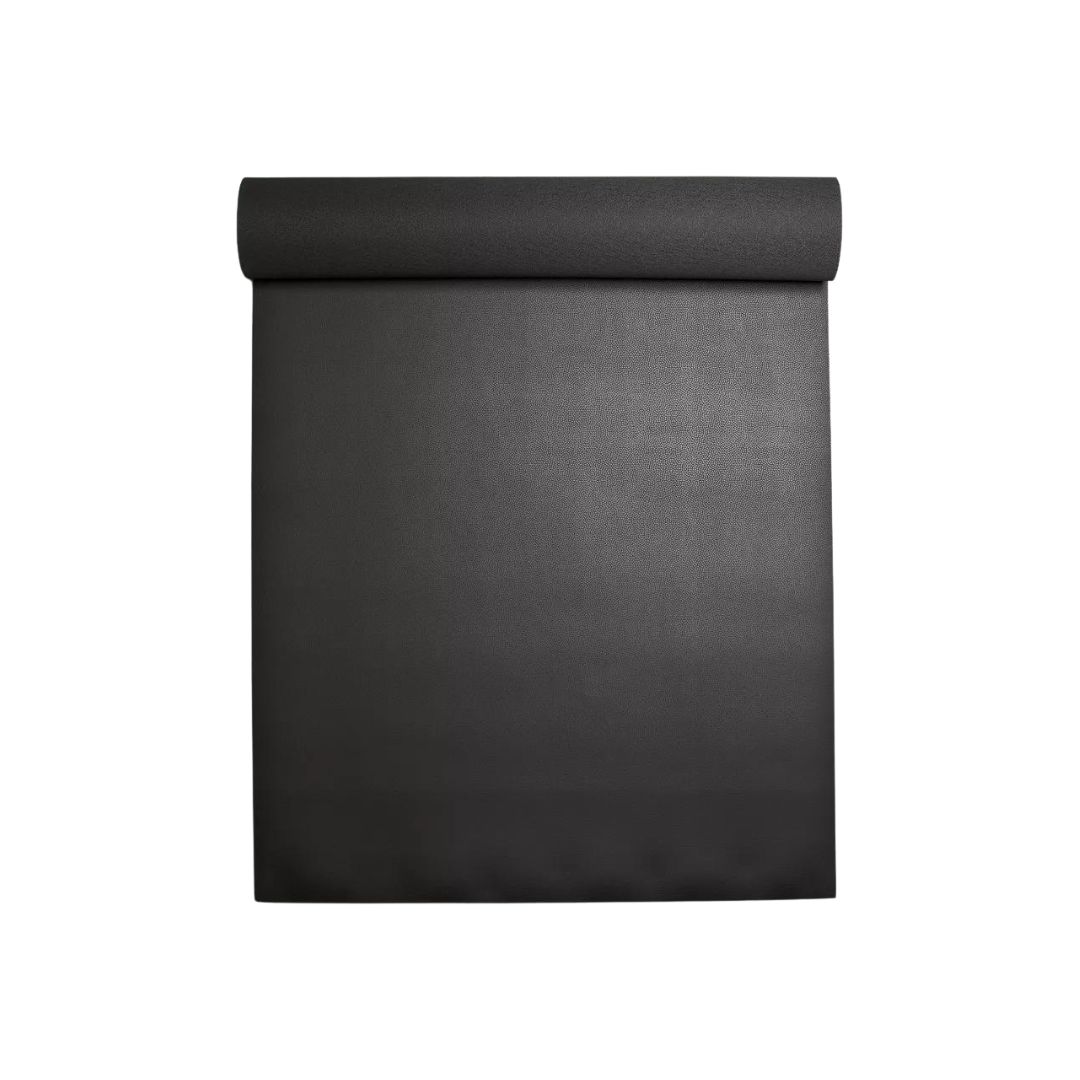
A decent workout mat is a non-negotiable, and you can't go far wrong with this Lululemon beauty. Made from FSC-certified rubber, the grippy top layer will absorb moisture while an antimicrobial additive prevents mould and other nasties.

Anna Bartter is a freelance journalist who writes about health, fitness and women's lifestyle for publications including Stylist, Metro and Psychologies, among others.
She's always on a quest to find a variety of fun and functional workouts that give you the most bang for your workout buck and she's passionate about championing movement for everyone's mental and physical wellbeing.
-
 Prince Harry's "proud" words about wife Meghan Markle are going viral
Prince Harry's "proud" words about wife Meghan Markle are going viralBy Jenny Proudfoot
-
 Sources have opened up about Timothée Chalamet and Kylie Jenner's "intense" start to the year
Sources have opened up about Timothée Chalamet and Kylie Jenner's "intense" start to the yearBy Jenny Proudfoot
-
 Two Hollywood actresses were offered the role of Carrie Bradshaw before Sarah Jessica Parker
Two Hollywood actresses were offered the role of Carrie Bradshaw before Sarah Jessica ParkerBy Jenny Proudfoot
-
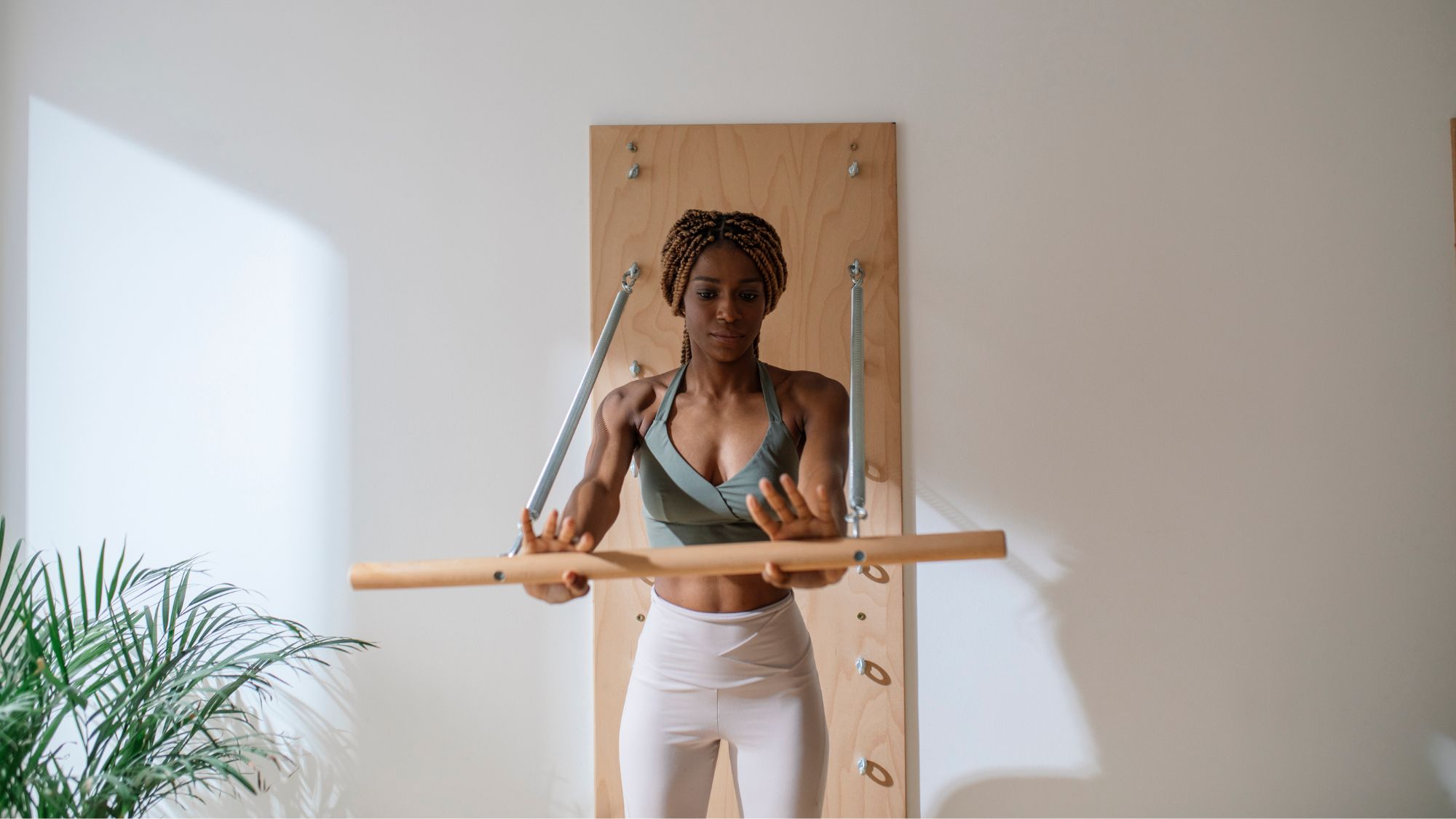 Stop what you're doing: these are, hands down, the best wall Pilates workouts for the core, according to top instructors
Stop what you're doing: these are, hands down, the best wall Pilates workouts for the core, according to top instructorsRigs at the ready.
By Katie Sims
-
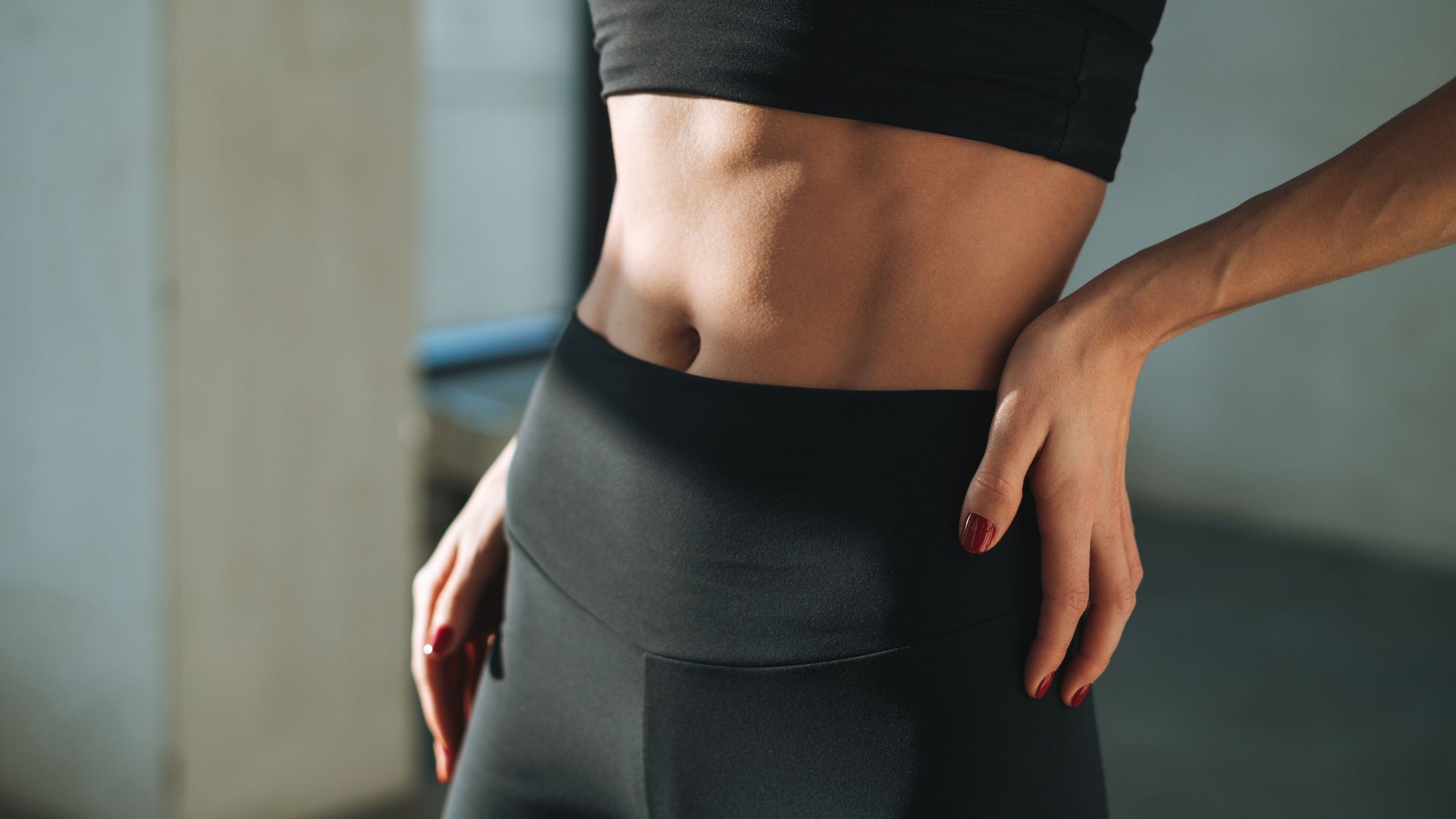 Modern Pilates is one of the most fun yet effective ways to strengthen and lengthen your body - 6 exercises to try
Modern Pilates is one of the most fun yet effective ways to strengthen and lengthen your body - 6 exercises to tryKeen to strengthen your entire body? This one's for you.
By Anna Bartter
-
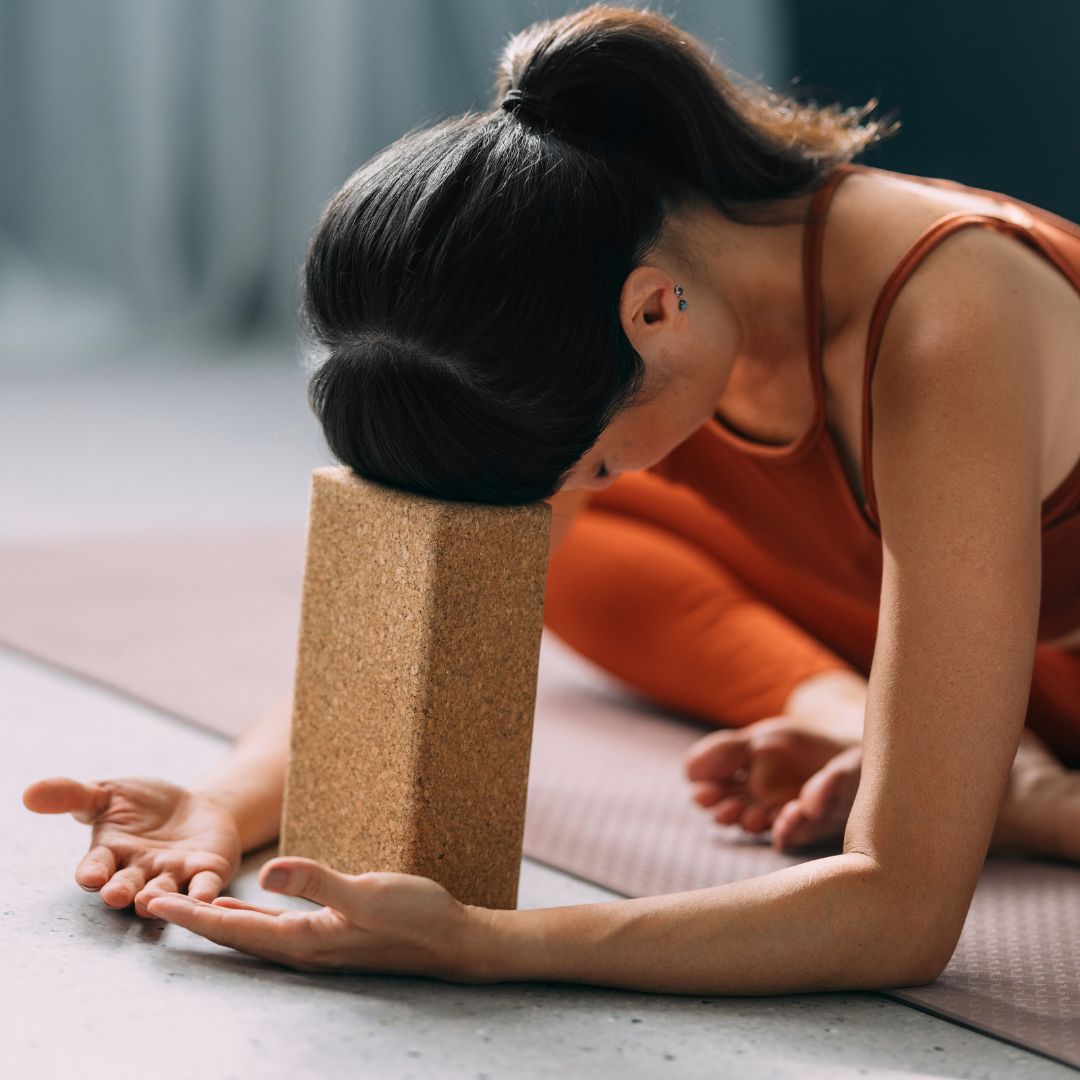 Short on time but keen to boost body and mind? Top experts share their go-to 10-minute yoga flows
Short on time but keen to boost body and mind? Top experts share their go-to 10-minute yoga flowsGuaranteed to make you feel grounded.
By Ashleigh Spiliopoulou
-
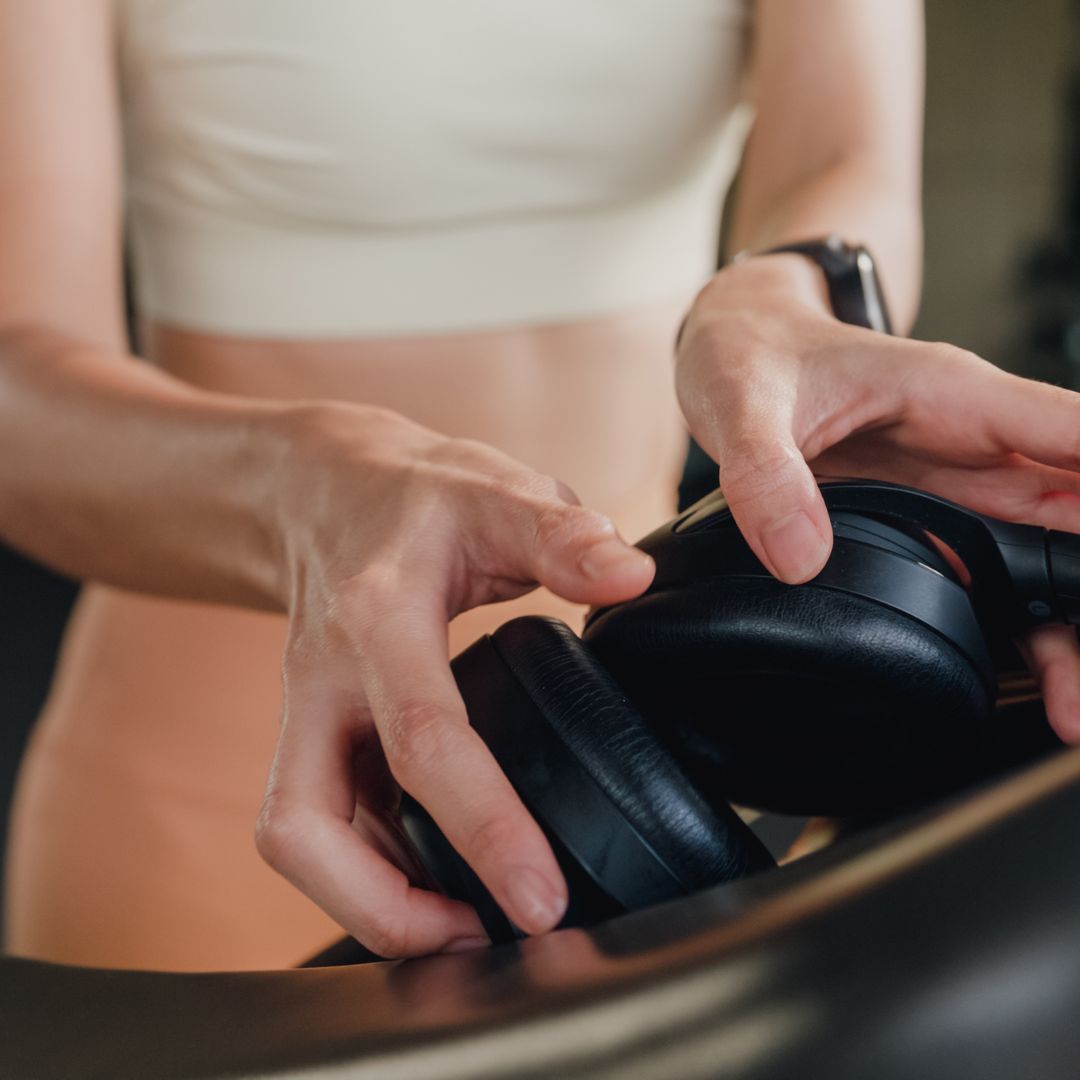 It's the must-have bit of fit kit of the year - a fitness expert shares their 5 top tips for choosing a walking pad
It's the must-have bit of fit kit of the year - a fitness expert shares their 5 top tips for choosing a walking padThis year's fitness must-buy.
By Katie Sims
-
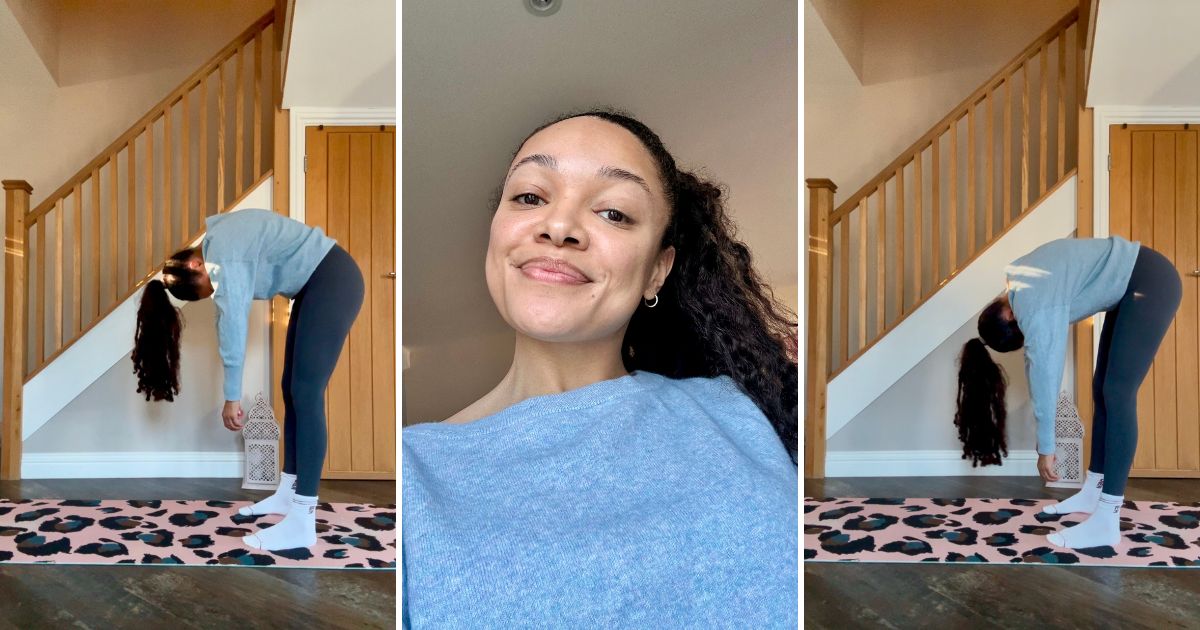 I tried Pilates roll-downs every day for a week - and was amazed at how quickly it eased years of stiffness
I tried Pilates roll-downs every day for a week - and was amazed at how quickly it eased years of stiffnessConsider my spine more mobile than before.
By Rebecca Shepherd
-
 Spring has finally sprung - 6 best outdoor workouts that are totally free and boost both body and mind
Spring has finally sprung - 6 best outdoor workouts that are totally free and boost both body and mindSoak in the nature and boost Vitamin D *and* endorphins.
By Anna Bartter
-
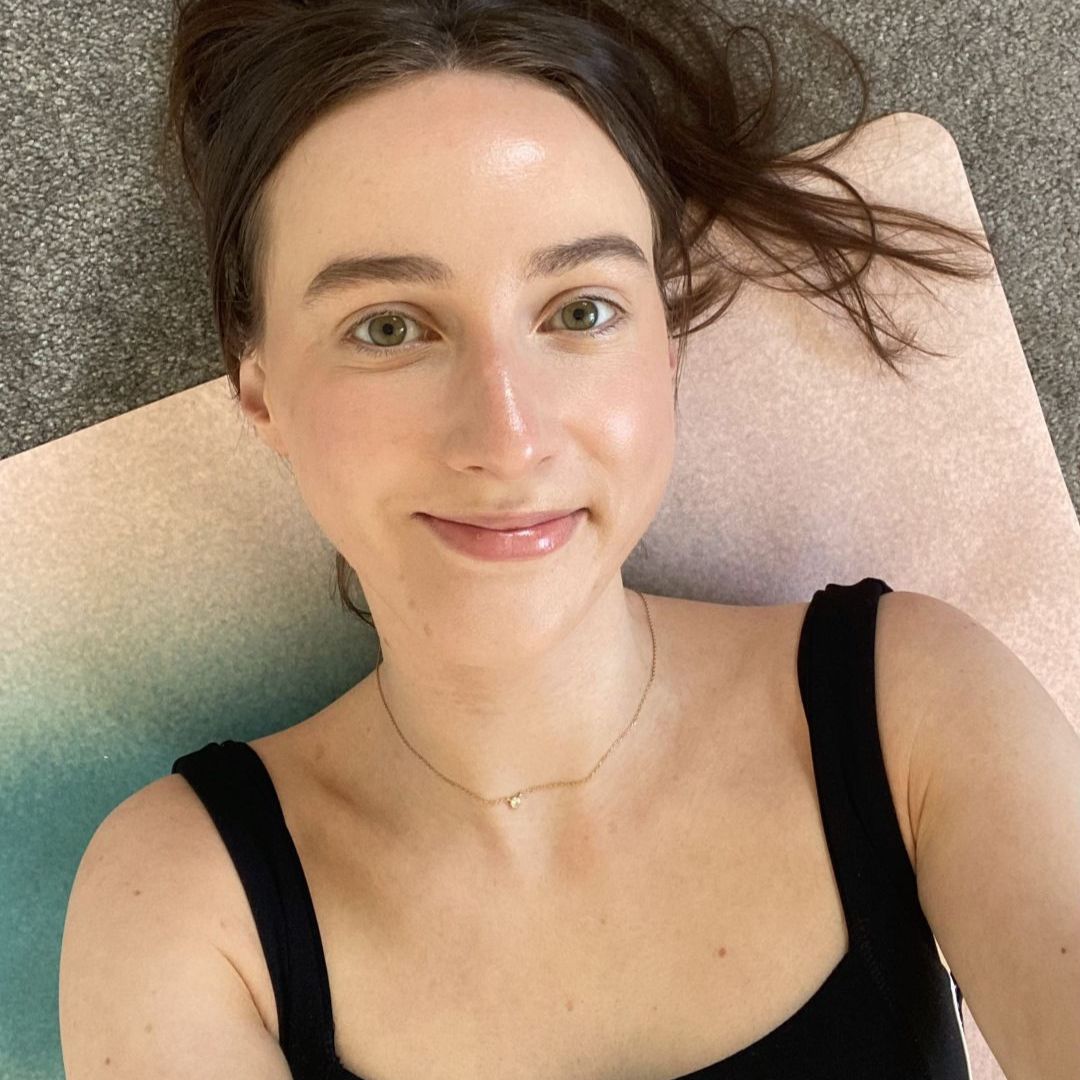 I tried Pilates scissors, the raved-about Pilates move - and think it's the best combination of stretching and strengthening ever
I tried Pilates scissors, the raved-about Pilates move - and think it's the best combination of stretching and strengthening everTrust me, this one's worth trying.
By Katie Sims
-
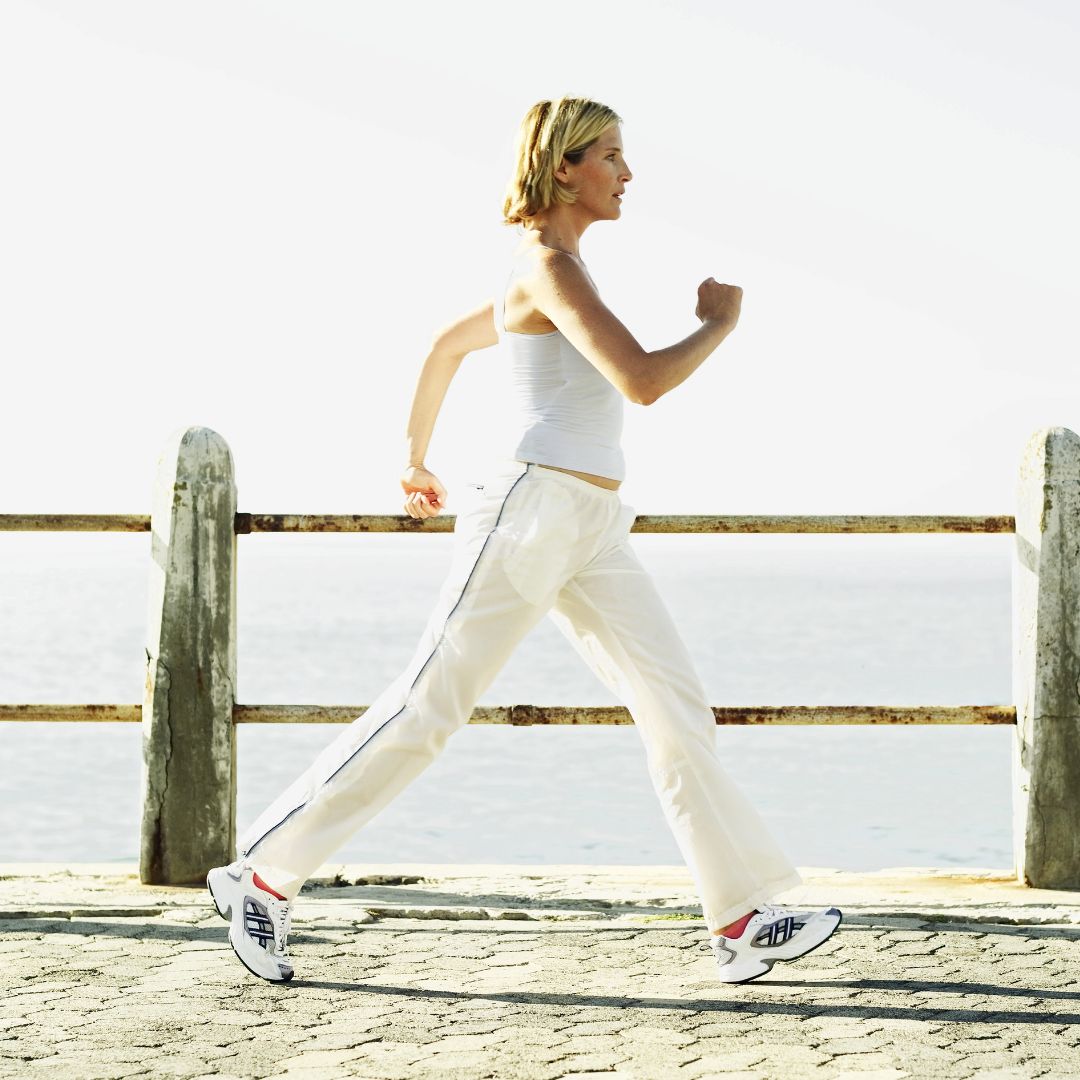 Power walking is the latest trending workout - and it promises to supercharge your health in the simplest way
Power walking is the latest trending workout - and it promises to supercharge your health in the simplest wayKeen to find out more? Step this way...
By Rebecca Shepherd


